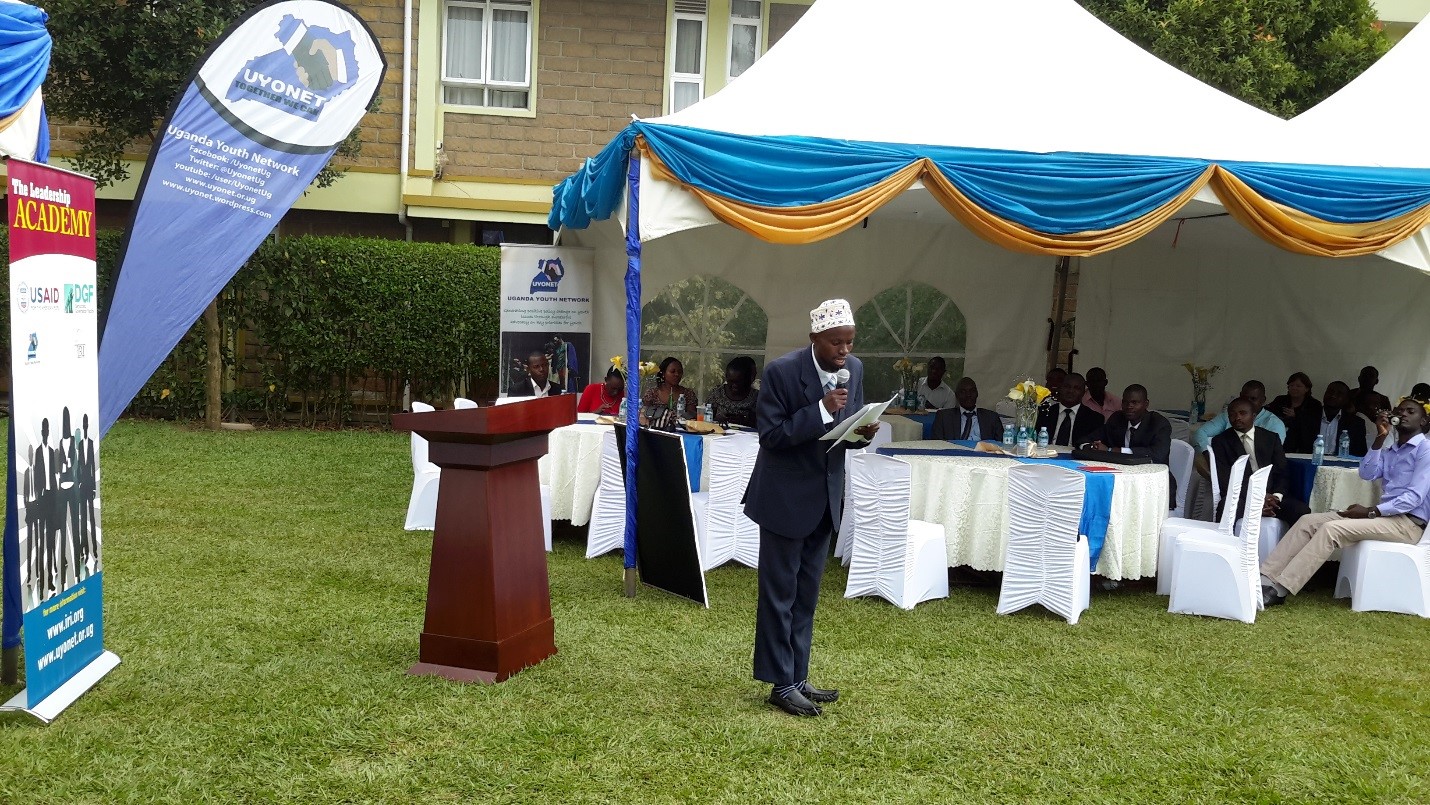
Uganda, where 78 percent of the population is younger than 35, is one of the youngest nations in the world.
Despite their large proportion of the population, Uganda’s youth participation is through legal framework restricted within the spheres of the National Youth Council and local government councils. Due to the political environment that favors older, more accomplished and richer candidates and widespread deficiency of skills and knowledge, Uganda’s young people rarely participate in politics in an effective manner. Youth governance institutions, such as the National Youth Council, have been traditionally underfunded and operate under the culture of patronage and protectionism. Additionally, this lack of support for youth leadership development has failed to create an environment capable of engaging and advocating for youth issues.
IRI has found that rising politicians, who are supposed to receive training from their political party, are woefully unprepared to run for office. The lack of political training directly impacts the quality and quantity of emerging young politicians. Efforts to strengthen democratic governance in Uganda must revolve around building a new generation of young leaders who are politically astute, ideologically oriented, ethically sound, and patriotic. These elements served as the basis for establishing the Leadership Academy as well as the foundational pillars for its curriculum.
The Leadership Academy was founded by the International Republican Institute and its partner the Uganda Youth Network (UYONET), and is funded by USAID and the Democratic Governance Facility (a basket fund of European donors). The first Academy was launched in 2014 with a class of 50 students (selected out of over 700 applications). So far, through three classes of the academy, 210 individuals have completed the program successfully. Through a series of trainings, dialogues and practical work over a six month period of time, participants were exposed to non-academic course work, leadership training, mentoring, and grassroots-based community work. The academy has recognized its purpose of creating a new generation of young leaders with needed skills, ethics, and integrity to take Uganda forward.
In addition to the six months of training, participants were required to implement a Social Action Project (SAP). SAPs require participants to work in regional teams (which separate participants based on their location in Northern, Eastern, Central or Western Uganda) to identify a community need and then fundraise to purchase the resources required to implement a project that addresses a chosen issue. Team North chose to rehabilitate a classroom block at Angoltok Primary School in Alebtong district. The biggest challenge the team came across was fundraising. They managed to garner several in kind contributions and raise some money, but not enough to finish the project. As they were wondering what to do, one of the team members, a talented poet came up with an idea. To help raise the necessary funds, one of the team members, Elias Kigonya, composed a poem entitled “The Uganda We Want.”
At the beginning of the year, Elias heard about the Leadership Academy and felt inspired to apply. He successfully completed his application and became a student in the Academy’s third class. During and after the training sessions, he would go back to his hotel room and reflect on the day’s sessions. He would then draft his poems and present them before his classmates the next day.
In order to support his team’s fundraising efforts, Elias approached Diakonia, one of the international non-governmental organizations based in Uganda, which was simultaneously holding a conference at the same hotel. Elias suggested to the organizers to entertain the guests with his poems that evening. He recited two poems, one on conflict (an inspiration from previous day’s session on conflict management), and the other entitled “The Uganda We Want.” Participants of the Diakonia training, impressed with his performance, donated more than 300,000 Uganda shillings to support his team’s project.
Elias acknowledges that attending the Leadership Academy has enabled him to use his poetry to affect change in society. He has thus far written 10 poems, and recorded two. He plans to take his democracy campaign to mosques so that his fellow Muslims can also benefit from his poetry.
In one of the poems, he dreams of “The Uganda We Want”:
…Where the concern of citizens informs the actions of leaders
…Where leaders feel accountable to their social actions
…Where justice is not only preached on pulpits but witnessed in practice
…Where tribalism and racism are not the basis for recruitment
…Where the National Constitution is highly valued as a National Asset
…Where Economic development is the first priority
Top